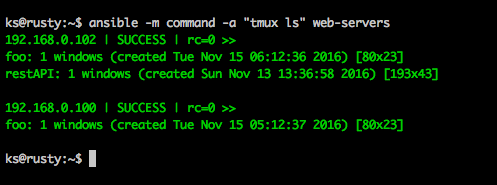最近花了幾天將自己的三個電腦叢架上Hadoop(什麼是Hadoop) , 其中一個datanode是一代的raspberry pi
而在啟動start-dfs.sh時,遇到了
Server VM is only supported on ARMv7+ VFP
經過谷歌後,發現是因為java server版本上使用VM, 但不支援ARMv6 因此那晚只好早點睡覺。
隔天上課發現了一個繞道方式解決VM不支援的問題
在raspberry pi 上
pi@raspberry:~$ java -version
java version “1.8.0_111”
Java(TM) SE Runtime Environment (build 1.8.0_111-b14)
Java HotSpot(TM) Client VM (build 25.111-b14, mixed mode)
ks@raspberry:~ $ java -server -version
Error occurred during initialization of VM
Server VM is only supported on ARMv7+ VFP
因此經過谷歌發現一個work around的方法。那就是先到$HADOOP_HOME/etc/hadoop 中更改
hadoop-env.sh (我的$HADOOP_HOME 為/opt/hadoop/hadoop/, 安裝hadoop的地址)
中更愛HADOOP_DATANODE_OPTS 在最後加上-client
export HADOOP_DATANODE_OPTS="-Dcom.sun.management.jmxremote $HADOOP_DATANODE_OPTS -client"
這樣便可以避開使用java -server 的指令。
圖源:https://upload.wikimedia.org/wikipedia/commons/thumb/0/0e/Hadoop_logo.svg/2000px-Hadoop_logo.svg.png



